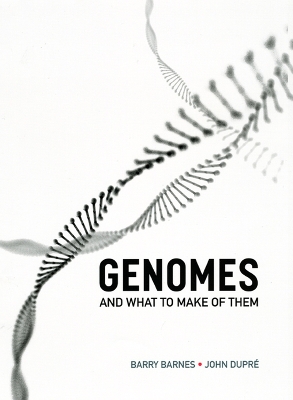In 2003 the Human Genome Project announced that it had achieved a stunning scientific breakthrough: the full map of the human genome, and with it our first complete picture of the basic building block of human life. Since then, boasts about the benefits - and warnings of the dangers - of genomics have remained front-page news. For the nonscientist, the claims and counterclaims are dizzying - what does it really mean to understand the genome? Barry Barnes and John Dupre offer an answer to that question and many more in "Genomes and What to Make of Them", a clear and lively account of the genomic revolution and its promise. The book opens with a brief history of the science of genetics and genomics, from Mendel to Watson and Crick and all the way up to Craig Venter; from there the authors delve into the use of genomics in determining evolutionary paths. Barnes and Dupre then consider both the power and risks of genetics, from the economic potential of plant genomes to overblown claims that certain human genes can be directly tied to such traits as intelligence or homosexuality.
Ultimately, the authors argue, we are now living with a new knowledge as powerful in its way as nuclear physics, and the stark choices that face us - between biological warfare and gene therapy, a new eugenics or a new agricultural revolution - will demand the full engagement of both scientists and citizens.
- ISBN10 022605456X
- ISBN13 9780226054568
- Publish Date 2 April 2013 (first published 1 November 2008)
- Publish Status Active
- Publish Country US
- Imprint University of Chicago Press
- Format Paperback
- Pages 288
- Language English
- URL http://wiley.com/remtitle.cgi?isbn=9780226054568
